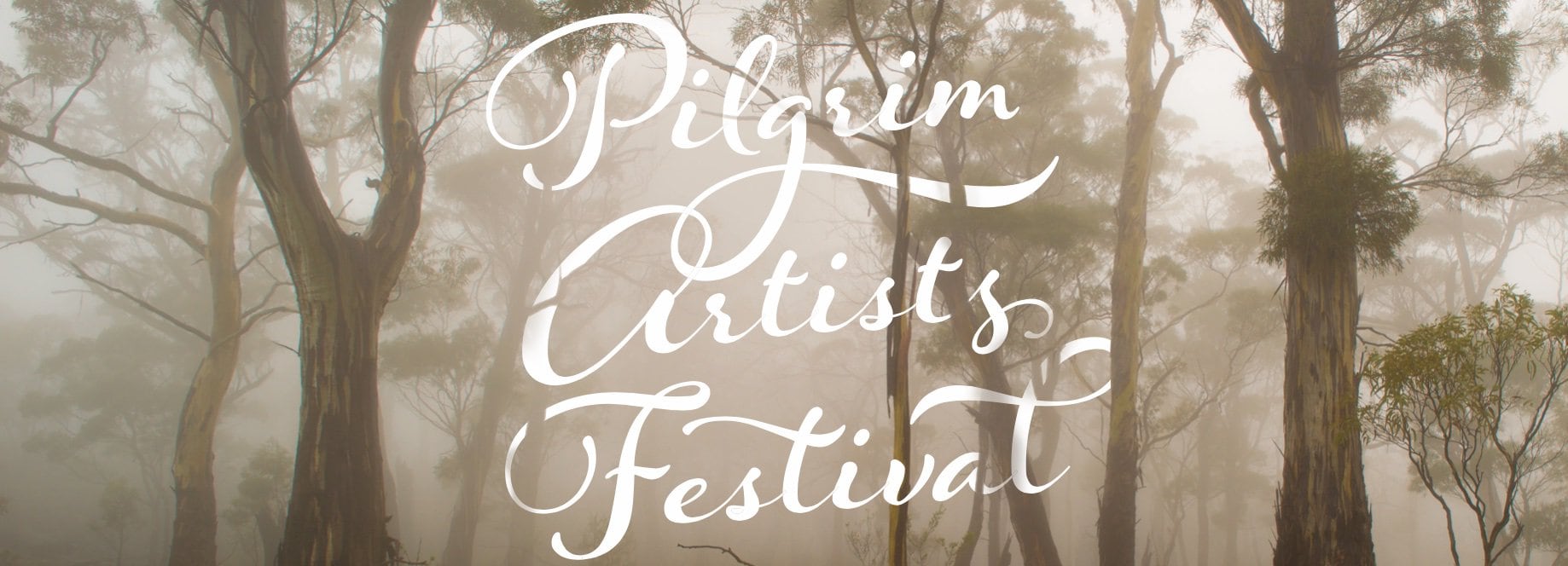Pilgrim Artists Festival - 2022 Literary Finalists
For our 2022 Pilgrim Artists Festival, we invited literary submissions of fiction, non-fiction, and poetry in three age brackets: adult (18+), teen (13-17), and child (12 and under).
Below you'll find the winners, finalists, and runners up in the Adult age bracket. You can read the youth entries here. And if you'd like to compare with past winners, feel free to visit 2021 and 2019. (The 2020 festival was cancelled due to the pandemic.)
Writers for the 2022 festival had a maximum of 500 words to explore our festival prompt: Justice and Mercy. They were encouraged to reflect - from a Christian perspective - on either or both aspects of the prompt. Then, all entries were judged anonymously by an independent team of literary curators. That is, the curators had no idea whose work they were evaluating. These curators chose three finalists from a competitive field in each category at each age level, for you, the public, to vote on in person at the festival.
Adult entrants were eligible for:
-
- In poetry, the $200 Wandering Bookseller Prize for Poetry, and a $100 Wandering Bookseller gift voucher;
-
- In non-fiction, the $200 Soul Tread Prize for Non-Fiction, and an annual Soul Tread pack (valued at $100);
-
- In fiction, the $200 W.R. Gingell Prize for Fiction, and a $100 Wandering Bookseller gift voucher.
Fiction
Adult Winner
Rise
By Daniel Watson
The guilt was crushing.
He had no case to answer, so he was told. There were no charges, no trial, but his conscience was a noose around his neck and his shame a millstone.
He clutched the child’s necklace and let the bitter cold bite his face. He looked out at the gnarled peaks of the black ocean and her memory breathed into him with the rise and fall of the swell. Her hair danced in the wisps of the spray. The howl of the wind carried the desperation of her eyes and hands that searched for him, and he longed as ever that the current had dragged him to the bottom instead.
It should have. He insisted they go. He ignored the warnings. He refused to turn back. Yet, for all his sins, the ocean chose her that night, pulling her from the chaos of the storm that battered the deck into the inky void below.
Now he was there again, having sailed to that place where he last shouted her name into the tempest, his tiny boat a scarlet speck on the building sea. He stood on its prow, face-to-face with the deep, urging it to take him, to plunge him under and let him submit to the judgment of the mighty, unyielding ocean.
As the rain closed like curtains and the swell rose under his leaden feet, he knew it was time. The waters beckoned. He closed his eyes, took his final breath and fell forward into the abyss.
The icy sting of the surface broke his fall and at once the sweeping of wind and waves ceased. A rush, a crash, then nothing. Time stopped. He kept his eyes pressed shut and waited, expecting the whips of the furious surges to lash him. He waited to be sentenced by the eddying shadows and for the cold to condemn him into darkness, but there was only stillness.
Peace.
Eventually he opened his eyes, expecting only endless black. But there, suspended beneath the surface, he was overwhelmed by the light that gently reached for him through the tumult above, its dappled beams rippling in the soft current. It shone on his face, its warmth somehow easing the aching cold right to the tips of his fingers. He watched as the bubbles glistened and flittered around him as though to a joyful song.
Perhaps by instinct he reached his hand forward, the heavy necklace still clutched within. Then, finger by finger, he eased his grasp and watched it drift from his hold. As it faded out of sight, he felt himself rising and inexplicably heard a voice call to him from the depths.
Lift your head.
The wind and sea gasped as deeply as he when his head breached the surface. He couldn’t tell how long he’d been under. He remembered her necklace, her hands, her face, but the weight had gone. And as he floated, the ocean, as far from east to west, was calm.
Adult Finalists, Fiction
Colours of Mercy
By Esther Fan
“Thought I wouldn’t catch you before you closed.” He dumped the box on the counter. “Found in a drain. Last made a sound 5 minutes ago, might be dead by now,” the man grunted.
“We’ll take care of it,” Jenny smiled. “Thank you”.
“Hypothermic, hypoglycaemic, flea-riddled, emaciated...” I muttered, as I examined the small wad of wet fluff. “Barely a week old. The cat rescue centre won’t take it – especially not at this hour.” I glanced at the clock – a quarter past home time.
“I will.” Jenny replied, already preparing a hot water bottle. I was eyeing up a different, green bottle.
“Are you sure, Jen? Bottle feeding ‘round the clock? This one is so small - it might not survive.”
“It will.” she shot back. Her eyes showed the care and command that only a nurse’s could.
“Alright.” I knew better than to argue. “What’s the name?” Once named, there’s no going back.
She picked it up and stared at its closed, weepy eyes. “Gracie.” she declared.
Gracie the Grey I wrote, taking the liberty to add to the name, while adding yet another animal to Jenny’s file. I typed clinical notes quickly and dispensed medications on autopilot. Jenny, in no such hurry, gently washed and dried the poor feline, humming to herself.
I’ve always maintained that milk formula has no smell, but the kitten begged to differ. She moved. She opened her mouth. She stretched out her paws towards the warm, white bottle and between grateful grunts, drank in mercy.
An elderly lady burst through the door. “Hit by a car!” she panted, her face white as the towel she carried. “Wasn’t me.... I think it’s a stray... he was breathing when I picked him up...”
Jenny unwrapped the towel, unafraid. The unmistakable stench of tomcat filled the clinic reception. “We’ll help you out, old man,” she whispered.
“Oh, he’s a mess!” The lady continued in a panic. “What if he has an owner?”
“There’s no time to find out,” Jenny’s voice was kind. “In these situations, we’ve a duty of care – for all of God’s creatures. Thank you for bringing him in.”
“No hindlimb reflexes, no tail twitch – I’m sure its spinal...” I mumbled, donning mask and gloves. “You ain’t taking this one home Jen.” His heart fluttered at the end of my stethoscope, like a butterfly trapped in a cage. Jenny nodded; she knew. She wiped the tears from her eyes, the blood from his mouth and went to fetch the bottle.
I held the syringe up to the fading light. I’ve always imagined its thick, green contents to be sweet - like syrup perhaps, in a different context. The cat lifted his dark eyes. He flicked his ears. He extended his paws, as if to receive an offering. Green flowed; red stopped. I swear I heard the beating of wings, as his veins drank in mercy.
Final Transmission
By Suzannah Rowntree
<CAPITAN MERCHANT VESSEL FARSEEKER - COMMS STATION FINAL TRANSMISSION SENT 49/13/2839 16:33>
FARSEEKER: Farseeker to the Lion's Throat. This is Captain Ardent Carta speaking. Do you read me? Over.
[NO RESPONSE]
[DISTANT YELLING. SOUND OF BLOWS - APPARENTLY, THE COMMS STATION BLAST DOOR WAS BEING RAMMED WITH A HEAVY OBJECT]
FARSEEKER: Lion’s Throat, this is Farseeker! I have an emergency! Do you read? Over.
[NO RESPONSE]
FARSEEKER: Read me, ***** it! I know you're there. You spoke to Phillix. Right before he vented himself out the airlock. Then you spoke to Bround. He took an axe to the mess hall. [LAUGHTER] Mess hall. That amused you, did it? You even spoke through one of the cargo, right when the killing started. “You’ve all sinned, reckoning is here.” You're a judgemental blighter as well as a sick one, aren't you? Well, [SARCASM] forgive me, Father.
[NO RESPONSE]
FARSEEKER: I can't believe I'm trying to radio a wormhole.
[HIGH PITCHED WHINING - OUR SPECIALIST’S OPINION IS THAT A LASER CUTTER WAS NOW TAKEN TO THE BLAST DOOR]
FARSEEKER: **** !
FARSEEKER: Look, whatever you are out there—I gather there's some sort of taboo on this wormhole. The Namardian locals said not to intrude—"Death awaits those impious ones who venture into the Lion's Throat", all very ominous and superstitious—but they've barely discovered heavier-than-air, let alone faster-than-light. We're not trying to make trouble. We’re just sentience merchants, trying to get our cargo home to Capita Six. The portal we came by won’t open again for two months and in the meanwhile the cargo is bound to degrade. Over.
[NO RESPONSE]
[A CLANG - EVIDENTLY PART OF THE BLAST DOOR FALLING AWAY]
[LASER CUTTER POWERING DOWN]
[MOMENTARY SILENCE]
FARSEEKER [FORMER CREW]: Let me...in, Captain. You must...pay, just like...the rest of us.
FARSEEKER [CAPTAIN, HURRIEDLY]: There are no Capitan records of this wormhole, but once I'm through I guarantee there will be. No ship of ours will ever disturb you again. Over.
[NO RESPONSE]
[LASER CUTTER POWERING ON AGAIN]
FARSEEKER [LOUDER]: Come on, think this through! You need to leave someone alive! You need me alive!
[SOUND OF DOOR FALLING OPEN]
FARSEEKER: For heaven's sake, answer me! How was I to know?
[LASER CUTTER APPROACHING]
FARSEEKER [SCREAMING]: What about the cargo? I have five hundred sentient Namardians in my hold. Aren't they your worshippers? Won't you have mercy on them—?
[THREE SHOTS IN QUICK SUCCESSION] [SCREAMING]
[SEVERAL DISTINCT THUDS - REGRETTABLY, CAPTAIN CARTA APPEARS TO HAVE BEEN DISMEMBERED]
[SILENCE]
[SO I NEED TO DESCRIBE THE VOICE. THE VOICE IS LIKE STONE. THE VOICE IS LIKE LABYRINTHS. THE VOICE IS LIKE RUINED CITIES FALLING FROM THE SKY. IT SPEAKS ONLY WHEN SILENCE FALLS]
LION'S THROAT: But I do have mercy on them. <END TRANSMISSION>
Adult Runners Up, Fiction
Say Sorry
By Michael James
I walk into the lounge room and they don’t hear me coming. I was sent to my room then I came down the stairs now I’ve come into the room. I’m inside but I’m outside. Maybe they know that I’m there and they’re waiting until I’m ready to say something. Mummy knows, I’m sure. I look a little bit at Daddy but only really shy because I can do this with Mummy but she’ll have to help me with Daddy.
—I’m sorry, I mumble at Mummy, right close to her armchair and she’s sitting with her legs under her bottom and her big white windcheater.
—What was that darling? she asks, and I know she wants me to say a Proper Sorry.
I’m really really brave and true when I look at her face, in her eyes, and I keep looking and I say it all.
—I’m really really sorry I cut off Gizmo’s whiskers with my bunny rabbit scissors. It was a cruel cruel cruel thing to do and it’s the worst thing I’ve ever done and I’ll never do it again, I say and I feel cold all over.
Mummy waits. Just for a second. But it’s important she waits for a second. The Sorry come first. Say it. Say it’s bad. Say that I did it. Say sorry for it. Then wait. Then after a second Mummy’s lips open just a little bit and I can hear just a little breath and she says with her eyes and her words:
—I forgive you, Stevie. We forgive you.
And then I don’t just feel cold I feel so deeply deeply big and sad and it’s all over when I cry and it’s a really deep big cry and I’m just standing there and everyone is watching me and I don’t close my eyes but my mouth is all weird and I can feel the tears and the breathing is all weird and I can feel a bit of snot. Mummy’s mouth is still a little open and her eyes close just a little and she puts her head on its side a little bit and she says:
—Come here, darling boy, and her arms reach to me and I tumble into her armchair. I forgive you, Stephen. It’s ok now. We all love you.
I let myself close my eyes for a second. Forgiveness. I let myself breathe weirdly and wipe snot on Mummy’s windcheater and I let myself feel her deep, kind breathing body. Sorry. And then I think about opening my eyes again but all I see is Mummy’s shoulder and a bookshelf. Love. I squiggle around on Mummy’s lap, squiggle up a bit more to be sitting a bit more and I dare to look at Daddy. He nods and he smiles with a closed mouth and then his mouth opens just a little bit.
—We forgive you, cobber.
If you can be forgiven then maybe anything is possible.
Moons of Weeping
By Jacob Kewley
If I did laugh that evening, it was only to keep from weeping.
The little goat was the most insistent creature I knew and nearly the most impulsive. It’s been two months in the wilderness, and I do miss him dearly, the small whiskered face and glassy eyes. It’s not right for us to be parted when he is so young.
Why is it always the young things that must die for the pride of the old? I saw the field: the broken bodies of the young men, and they tell me it was a great victory. I even saw my good boy – to whom I was to be wed next spring. He was lying just beyond the camp, his sword not yet wet with the infidel blood. What still cuts me is that the arrow was one of ours.
I rise early while the dew is still thick, and the sun is yet to rise. I crawl from the tent and glance about at the sleeping forms of the girls. I’ll let them sleep. Slumber, like little snatches of darkness, is too much for me these days. I’ll have time to rest next week.
The moon and its wiles have often been a source of frustration for me, but these two transits have been too short. Above the heather and near that little rocky outcrop I see it clearly - the hearkening of my second new moon.
‘Almighty, give me one more,” I whisper. The words like petals from a flower, fall to the air and vanish with a lilting sadness. At least it’s almost over. If not love, then duty is enough.
I crouch among the tangled brush - toes digging into the soft sand and look about me. My father’s camp is just beyond the tall hill. It would have been tempting to wander. A friendly merchant or even slavers could have been enough if I had been so inclined - but no. The Almighty is not to be mocked and to come peacefully to my end is better than meeting it one night unexpectedly but more surely with the howling terror of guilty flight.
The girls are rising about me. I turn to greet them when a familiar acrid smell meets my nose. I glance across to the tall hill and see a stain of dark smoke against the morning sky. The faint screaming of a goat touches my ears. It’s calling me home.
It’s strange. I told him these two moons were for weeping, but I’ve hardly cried. Then what was this for? If for readiness, then it’s been wasted as I’m not. Is this how the cycle of my people must continue? Always another sacrifice?
The cries of the goat cut short. My finger jabs in pain as I scrape my cuticle a little too much.
Me? I am my father’s daughter despite what he did. You’ve heard my voice, but when it’s my turn on the altar I’m not going to scream.
Non-Fiction
Adult Winner
Everything that isn’t Broken
By Emma Wilkins
It wasn’t until I was thirty-seven-years old, married with three children under ten, that I began to appreciate the fact I had full custody of my children. Better still, I shared it with my husband who—and this suddenly seemed too perfect to be true—was also their father.
Custody. Such a cold, clinical word. I’d never really thought about keeping it because I’d never really thought about losing it. I’d seen the different ways families could be torn apart and thrown together, but I hadn’t fully realised it might happen to any couple any time, or rather, any couple over time.
I knew there were spouses who could no longer speak to each other, let alone live together; that some mothers, some fathers, had to fight for every minute they spent with their kids—but I hadn’t seen it all unfold up close.
Now, I knew multiple once-besotted now-estranged couples who were negotiating custody arrangements. Now, I had seen people I loved betray people they were meant to love. Now, I was hearing that terrible word again and again. And I couldn’t look away —no close friend could.
I started to wonder how it might feel to be left for another; how it might feel if your children hated, even loved—even preferred—them; how you would bear it if your time with them was cut in half—in half!—when they’re already growing up, up and away, so fast.
I started wondering these things, and wondering at the fact I hadn’t wondered them before, and I realised the things you don’t think about might be just as telling as the things you do.
They say you don’t know what you’ve got till it’s gone and sometimes, that’s true, but sometimes you realise what you have while it’s still there. And you see how undeserved it is, how precious and how fragile, how unlikely, how in need of tender care.
In a world where anything could happen any time, you realise every mercy is a gift.
Adult Finalists, Non-fiction
Mercy in My Sorrow
By Emily Isham
My son, Ned, was 6 when he died. Nearly 7. We’d survived those torturous early months of constant screaming from colicky agony; his sweet, cobalt eyes boring through my weary soul each time he latched ravenously onto my breast. He’d conquered those early milestones; he could strum a ukulele, construct complex Lego, sweetly comfort siblings, and intuitively sense others’ melancholy. But cancer didn’t care for his gentleness, his creative flair, nor his sense of humour, as it gradually seeped from his bone marrow, into each organ, like oozing, black tar leaching into all spaces within his small body – the body God created, that I birthed. With each ebb and flow of that tar-like river came horrible uncertainty before horrible certainty – sometimes the former worse than the latter because of the vacuity of the unknown. Within pain’s doggedness, uncertainty becomes excruciatingly unbearable.
One of parenthood’s greatest gifts has been its staunch grounding in the now – each moment leading to another. One day’s sacrifice being forgotten for the next. But the reality of parenting is that there is no longer time for oneself – one becomes merely backstage crew for actors on stage. When one of those main actors suddenly disappears, the balance is thrown. Suddenly roles are unsteady and the theatre spins erratically. Once, our Ned was a pivotal actor in our family show; someone walking assuredly through life, so beloved. Now he is a past being; still integral to our family’s fabric, but a quiet truth held tenderly as if secret, for no child loss is palatable to hear of or imagine.
Now, my husband and I only have four living children on this side of the curtain, with Ned whispering from the other. The torment of losing a child is all-encompassing, with uneasiness borne of years of worry. When once, having a healthy child was an assumption, worry has programmed us into “what if” and “assume the worst” parents. And all it took was one of our “what ifs” to be justified for all our “what ifs” to now be legitimate.
Francis Weller said “it takes outrageous courage to face outrageous loss.” Our child died, yet we chose to bring a new life into this world – our Bringer of Joy. God’s gift. There can be no greater example of God’s sovereignty – hope amidst despair, conviction amidst fear, mercy amidst audacity, grace amidst fallenness.
So I pray.
“God. Have mercy. Grant me strength to hope through sorrow. Grant me thankfulness for the children we have. Grant me peace for the futures I cannot foresee. Grant me patience to listen deeply to my children’s worries and the tranquillity to just ‘be’ in their presence – to feel their soft embraces, to savour their pledges of love, to notice their lovely imperfections. Grant me wisdom to help them stand against injustice and navigate this world – through its brokenness and joys, tragedies and wonders. And grant me courage to gradually let these precious living children go, over the cacophony of worry and fear, entrusting their souls to One who is greater still.”
My House, Whose Home?
By Jacqueline Law
One visit and I wanted to cry. My highly-sensitive nine-year-old daughter did, too, although she expressed it by walking out, shutting herself in the car, and adamantly declaring that she did not want to live there. Two years older and she might have added, ‘under any circumstances.’ If she was the adult she pretended to be she might have said, ‘I will not live there!’ Instead, that’s my choice, and the circumstances are such that I would prefer my family live for twelve months in a dilapidated tin-pot house that we own rather than pay a dollar more in rent.
‘Let’s call it the next adventure,’ I suggested, ‘we could say we’re camping!’ ‘
No,’ she scowled, ‘camping makes it seem like we’re poor.’
‘How so?’
‘Tents. You know, the homeless people near the park?’
I looked at my daughter as though I was the child. She had struck to the heart of it, for there is something about inhabiting poor physical conditions that sickens the mind, leads to problematic decisions, and lessens dignity. How did she know this intuitively? How did she infer that we would be in danger of becoming undesirable just because our home was crumbling around and beneath us?
I knew many kids at school who had lived in ‘commission’ or cheap rental housing. As kids, that mattered diddly-squat; we all loved rugby league and riding our bikes all over town. Maybe I knew that some people’s parents did different kinds of work, but there was always a snack available if you were there after school, or lunch in the holidays. What I remember about some of these friends’ homes was they always seemed to have meticulously clean kitchens and bathrooms, with a distinct smell of AjaxTM. I recall lots of ‘clean’ smells associated with these friends, actually: flowery laundry detergent, fruity shampoo, pine-forest air freshener. I thought these were to cover up the filth. There would have been plenty of cigarette ash, dogs who lie on every piece of furniture, greasy fast-food wrapping, but suddenly I’m wondering if the ‘clean’ smells may have represented something else. What if ‘clean’, when you live in a ramshackle house, represents determination, fight, and a damned-if-I-will-be-damned kind of pride? What if ‘clean’ signifies fiercely maintaining a grip on your place in society?
As I contemplate the minimum amount of work we will need to do to make our tin-pot house liveable, I worry about keeping it clean: put pest control on my list; furniture, storage tubs, so that everything has a dust-free home. Thank God for hot running water. Then I tell myself what privilege it is to have a fixed address. I tell myself how privileged I am in all the ways, and I pray. Oh, how I pray! That my neighbours – across the street and across the strait – would also recognise their privilege. That we would both grow in our concern for the truly poor. That we would all seek to have our hearts cleaned.
Poetry
Adult Winner
Refugee Rights Lawyer
By Steven Micklethwaite
I often hear the slap of casefiles
On my desk. I feel the weight of them,
Like the weight of waves pulling at wet clothes.
I remember voices crying out in the dark.
Families. Children. The baby held above
The water, while the father sank.
My office chair creaks like the decking of a trawler,
As I stitch notes of hope across a page.
Did you know a pen bobs like the mast of a boat
Or an arm held above the ocean?
When we first went under we all fought
For the few jackets and debris left.
Me triumphant with my prize
Wrestled free from the hands of another,
Still more mounting my shoulders, screaming,
The worst of ourselves exposed, laid bare.
Everyone fell short.
Then, out of nowhere, a dazzling searchlight.
A trawler almost on top of us.
I had not seen it coming.
No-one had.
And the captain a dervish, barking orders,
Jumping from gunwale to gunwale, port to starboard,
While the crew lumped bodies from the water -
Bodies desperate for life but limp like corpses.
Our cries went up like gulls,
Me too. Me too. Me too.
But we had nothing to fear.
I was left in the cabin with six others.
And a thousand-mile stare,
Seeing again and again the moment when
Arms stretched me out against the sucking ocean
And a gaffer hook around my jacket wrenched me free.
Never did the stench of diesel and fish guts smell so sweet.
The captain wasn’t leaving anyone.
He filled the cabin, the bow, the masthead
And barked still more orders, his crew reaching over
And over, pulling bodies against the tide,
Each one birthed onto deck, blinking.
Migrants down the hatch, rafts inflated and filled,
A frenzy of rescue,
The boat an outrageous economy of balance.
White-faced, one of the crew is overheard.
She’ll take no more.
And the captain gazed out
At those few left
While counting the cost,
There will be enough room.
He said, drinking in the scene.
You know where I’m going.
Then his body pivoted and he was gone.
No-one said a word.
The crew, hushed and ashen, turned,
Dragged in the last of us
While I, bitterly gripping my jacket,
Watched dim reflections through the cabin glass.
Years later, after the camps
And endless background checks,
I would stare out to sea,
Struggling with an alien language
And new realities of poverty, grief, shame.
It was then I saw him, the captain, I’m sure.
His feet shuffling through the sand,
Not in a hurry.
He came to where I sat on my own
Facing the ocean. A wry smile on his face,
Mine as one who’d seen a ghost,
Though he was real enough.
You a dog visiting its vomit?
I left the beach that day and never returned.
Set my mind to becoming a lawyer.
I will not learn to swim though.
There’s no need once you’ve found land.
Adult Finalists, Poetry
Love Your Neighbour
as You Love Your Elves
By Stephen Isham
Chocolate boys pick Ivory Coast
plantations clean of red ripe pod those
skinny Christmas elves reach over reach
each a talent scout pick that Mr Miacca delivers
abuses and shuns, fresh recruits
taken for finger and thumb
far from their home sweet Santa circle.
Roused numb from his fever dream
mercy sleep where he hugs his mama’s
porridge bowl spoon that scrapes over scrapes
empty and in the sweaty equatorial waking
would fill his belly with those bitter beans.
Beans for the chocolatier
who presses sweet molded Christmas elves
neatly foiled in red net Santa stockings
each handed free at the local hardware
with every customer’s purchase.
Run run run as fast as you can
You can’t blame me
I’m the chocolatier, man!
The Exchange Bank of All Pain
By Michael Minkoff, Jr
At the exchange bank of all pain,
they set the going rate for tears.
They’ll give a penny for a paper-cut,
a bruise per dozen fears.
You can barter for a cataract
if you’d rather that than warts,
and tellers tell you, asked or not,
what all your pains are worth.
Bad marriages and time-shares,
impossible to sell,
get buried in the tranches
that some torment brokers meld
with sticky floors in theaters,
a fumbled public speech,
a meal that disappointed you,
a shelf just out of reach.
Addictions are a mortgage
you will work off day by day,
unaware compounded interest
means your loved ones also pay.
Like sudden death and suicide,
inherited by friends,
who’ll still have bills appearing
every now and once again.
Would you rather endure nightmares
or a tenderness of nerves?
Is it worth a year in prison
if your honor is preserved?
Most pain exchange economists
still swear by “tooth for tooth,”
so they’re stumped on if a pound of flesh
could clear a broken oath,
or if every pain of spirit’s
a non-tradable ill,
even if you’d spend your soul
to spare your body from the wheel.
And what of martyrs on their crosses?
Will they sow and never reap?
At the bank, they see that justice
means that mercy isn’t cheap.
Adult Runners Up, Poetry
Speaking in the Tones of Summer
By Sarah Downes
She is golden in her skin
And the glitter deep upon it –
Forever burning grass so thin
That only she can speak the sonnet
Of the humming buzzing from the grain
That is calling now and yet again
Through the dusty lack of falling rain.
She is harsh and cruel in all her ways
And relentless in the chase
Of short dark nights and eternal days
That light upon her noble face
And glaring, show the wrinkles there,
The sunspots on her face and hair –
Yet still everlasting, forever fair.
She is justice in the searing heat
And righteous in her tithe –
That the marching green must retreat
And allow the barren to survive.
They blanch the fruit upon the vine
And giving, let her drink that wine
Of what was yours, and yours was mine.
She is coming to your door
And slowing creeping through
The growing cracks upon the floor
That make their ways deep under you.
Three other sisters knew a welcome there
With them you had nine months to share
But of this gilded moll, beware.
Why Not?
By Jacqueline Law
Not to be there was never a choice, but it was hard to visit
you in hospital, being the only one
who could be there every day,
while every day it was up to me to fill
everyone and everything:
news for the family,
food for the children,
fuel for the car.
I tried not to worry. It would not have seemed like it,
but really, I tried. I believed
that life was more than cooking and laundry,
that I could not add an hour to my life;
I might have used that hour to pray.
I brought you wilted blooms of sorrow,
and biscuit crumbs of despair
while every day you showed up with hope to go
further with the physio in the rehab gym.
And every day you welcomed me.
You introduced me to the others whose lives had been suddenly stamped
‘incomplete’
like the very damage done to their spinal cords.
The others, who wondered when the home mods would ever be done
so they could go home, see their family, hug their children,
go out in a car.
You told me their stories:
all so human and real,
like the man who innocently fell in a bathroom doorway,
the older man, a grey nomad, who miraculously survived a car crash and combustion,
the gentle man who had escaped from Bosnia during the war.
And if I stopped talking, it was because I wondered
why should God show mercy to you, to me, in our predicament
and not to any of the others?
The notion silenced me.
The silence then became my prayer.
Special Thanks
We are so very grateful to Soul Tread, The Wandering Bookseller and W.R. Gingell for sponsoring our adult literary prizes.
All works on this page are copyright their original authors. The Pilgrim Hill Association Inc has been granted a permanent but non-exclusive right to publish these works. We hope you enjoy them.






